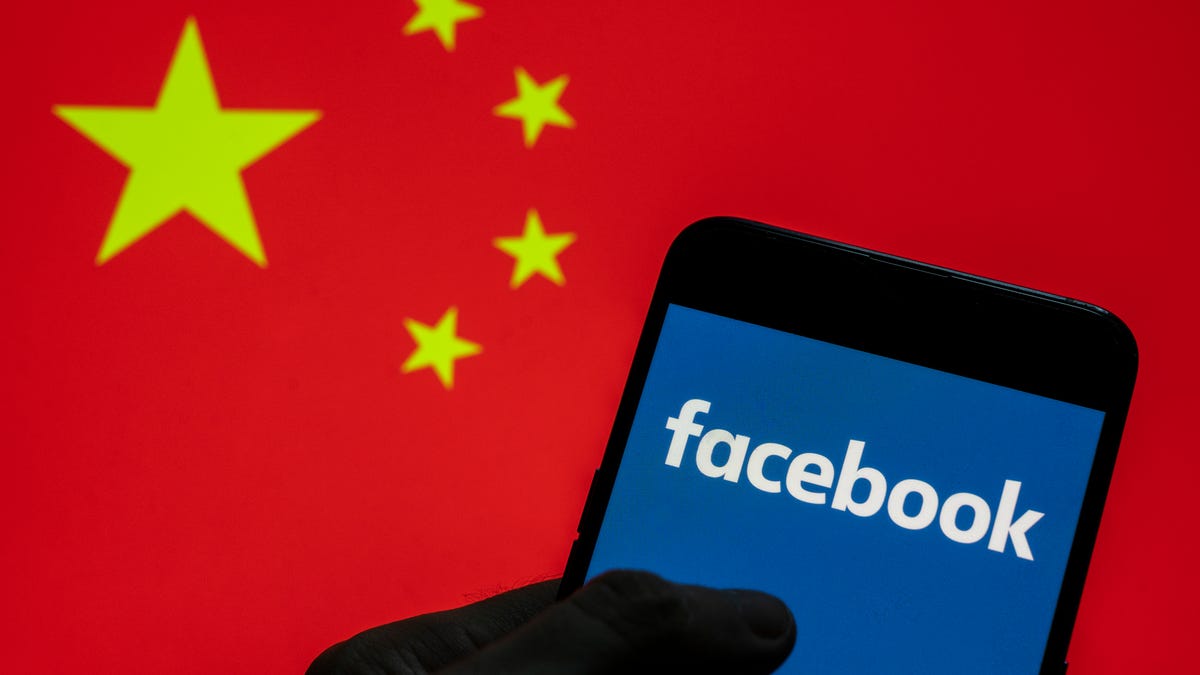Facebook Pulls Fake Accounts From China That Posed as Americans

Facebook parent Meta says it disrupted a Chinese network that focused on US politics ahead of the midterm elections.
What's happening
Meta said it pulled down fake accounts on Facebook and Instagram that appear to be from China and Russia.
Why it matters
The takedowns underscore how Meta is tackling disinformation ahead of the US midterm elections in November. US lawmakers have also raised concerns about social media's impact on national security.
Facebook has removed fake accounts from China that pretended to be conservative and liberal Americans criticizing US politicians and focusing on sensitive issues like gun control and abortion, parent company Meta said Tuesday.
"It's like they were using these hot-button issues to try and find an entry point into American discourse," said Ben Nimmo, who heads Meta's global threat intelligence group.
Meta said it's the first network of Chinese fake accounts the company has disrupted that focused on US politics ahead of the midterm elections in November. It's also different from Chinese influence operations that Meta has taken down in the past, Nimmo said. In previous election cycles, Chinese influence operations focused on criticizing the US to an international audience rather than a domestic one.
The account takedowns also show how Meta is tackling disinformation as US lawmakers raise more questions about social media's impact on national security. Earlier this month, executives from Meta, Google-owned YouTube, TikTok and Twitter testified before a Senate panel hearing on the topic. Peiter "Mudge" Zatko, Twitter's former head of security turned whistleblower, also spoke in front of lawmakers this month and expressed concerns about foreign influences on tech companies.
Meta said it took down 81 Facebook accounts, eight Pages, one Group and two accounts on its photo-and-video service Instagram that had ties to China. Some of the accounts targeted people in the US, while others focused on the Czech Republic and Chinese-and French-speaking audiences globally. Meta said the network was small and didn't attract much engagement before the company pulled it down.
The Chinese influence operation consisted of four efforts. The first cluster of accounts posted primarily in Chinese with fake accounts that had female names in English but male profile pictures. They criticized the US and its foreign policies and accused the US of surveillance and cyber attacks against China. The second and third cluster of accounts posted primarily in English this year, posing as conservative Americans and liberals, respectively.
One of the fake accounts posted a meme in April about US President Joe Biden with a phrase in all capital letters that read "One Year In: Nothing is Built. Nothing is Back. Nothing is Better." Another set of accounts posted a meme in August that called US Sen. Marco Rubio, a Florida Republican, "corrupt to the bone" and urged people to "vote him out."
The fourth cluster of accounts pretended to be people in the Czech Republic, sharing memes and texts that criticized the Czech government. Some of the fake accounts alleged that the Czech government of being a "puppet" of the US or European Union. One post warned that a "trade war with China will hurt more than with Russia."
The network's activity was sporadic, Meta said, and it largely posted during working hours in China so that means most Americans were asleep when the fake accounts shared content. The accounts also used various platforms, including Twitter. Meta said it wasn't made aware of any activity on TikTok, a short-form video app owned by Chinese tech company ByteDance, but that doesn't mean it didn't happen. The company also doesn't have sufficient evidence to attribute the fake Chinese accounts to any particular entity like the Chinese government.
Meta also said it pulled down a large network of fake accounts tied to Russia that primarily targeted Germany, France, Italy, Ukraine and the UK. The accounts mainly focused on the war in Ukraine and its impact in Europe. Meta said the network was "the largest and most complex Russian operation" the company has "disrupted since the war in Ukraine began."
The Russian operation ran more than 60 websites impersonating European media outlets such as German news site Der Spiegel and the Guardian, a British newspaper. These fake websites posted articles that "criticized Ukraine and Ukrainian refugees, praised Russia and argued that Western sanctions on Russia would backfire," Meta's report on the takedowns stated. The operation also created accounts on Facebook, Instagram, YouTube, Telegram, Twitter, Change.org, Avaaz.com and LiveJournal and posted in multiple languages.
Meta pulled down 1,633 Facebook accounts, 703 Pages, one Group and 29 accounts on Instagram from Russia.
"Both networks were exposed early and we took them down before they were able to build audiences on our platform," Nimmo said. "But we all need to stay vigilant because we know that the bad actors won't stop trying."

